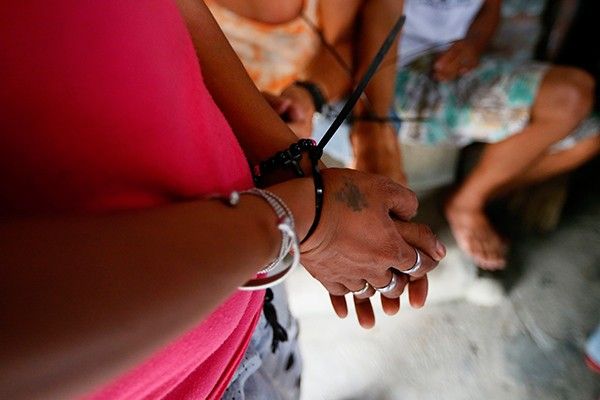UN experts, EU Parliament urge Philippines to rethink death penalty

MANILA, Philippines — United Nations special rapporteurs and the European Parliament appealed to the Philippine Congress to prevent the looming comeback of death penalty in the country.
The twin blows to President Rodrigo Duterte’s priority bill came Thursday after a statement from UN experts and a resolution approved by the European Parliament concerning drug killings, political persecution of Sen. Leila de Lima and the death penalty bill in the country.
READ: US raises 'significant concerns' over impunity, sharp rise in EJKs in Philippines
They noted that approval of death penalty would be in violation of Philippine obligations under international law. As a party to the Second Optional Protocol of the International Convention on Civil and Political Rights, the Philippines is committed to abolish death penalty.
The reinstatement of capital punishment would also set the Philippines “starkly against the global trend towards abolition,” UN special rapporteur on extrajudicial, summary or arbitrary executions Agnes Callamard and special rapporteur on torture and other cruel, inhuman or degrading treatment or punishment Nils Melzer said.
“By now, more than two-thirds of all countries in the world, that’s 141 States, have abolished the death penalty in law or in practice,” they explained.
The Philippines was the first country in the region to abolish death penalty in 2007. Reinstating it would “constitute a departure from the country’s regional leadership and global position as advocate of the abolition of the death penalty in international forums,” the UN statement read.
Last March 7, the House of Representatives has approved the bill, which would reintroduce capital punishment for drug-related offenses. Deliberations at the Senate, meanwhile, hit a snag after issues on the country’s international treaty obligations and serious repercussions on global trade deals were raised.
Senate Committee on Justice and Human Rights Chairman Sen. Richard Gordon ordered the hearings on the bill suspended until the Department of Justice comes up with a legal justification that the revival of death penalty would not violate any international treaty.
The European Parliament called on the Philippines to immediately halt proceedings to reinstate capital punishment.
Lowering of age of criminal liability slammed
The European Parliament tagged death penalty as a “cruel and inhuman” punishment, adding that it is not an effective deterrent to criminal behavior.
UN experts agreed with this, saying that “the use of the death penalty negates the inherent dignity of human beings, causes severe mental and physical pain or suffering and constitutes a violation of the prohibition of torture and other cruel, inhuman or degrading treatment or punishment.”
The European Parliament also called on the Philippine government not to lower the minimum age for criminal responsibility. The Duterte administration is mulling lowering the age of criminal liability from 15 to 9 years—a move that advocates decried as anti-children's rights.
Execution over drug offenses violates international law
Callamard and Melzer said imposing death penalty for drug-related offenses as well as crimes committed under the influence of dangerous drugs is “clearly not permitted under international law.”
“Even States retaining the death penalty may impose it only for the most serious crimes, that is, those involving intentional killing. Drug-related offenses do not meet this threshold,” they said.
“[T]he lack of any persuasive evidence that the death penalty contributes more than any other punishment to reducing criminality or drug-trafficking. Therefore, reintroducing this punishment as a deterrent for drug-trafficking is as illegal as it is futile.”
- Latest
- Trending






























